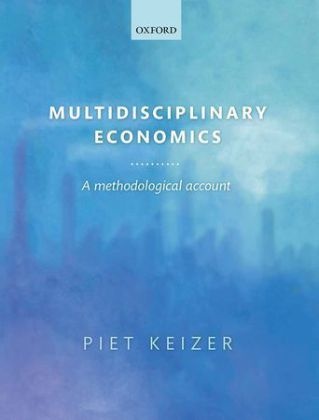Read more
The book argues that mainstream economists, who base their analyses only on the economic motivation of people, fail to explain and understand real-life economic phenomena. The economic crisis, which began in 2008, illustrates the relevance of psychic and social motivations, especially when combined with each other. This book discusses orthodox and heterodox economics, and offers the reader ample material on philosophy of science, psychology and sociology. A multidisciplinary economic perspective is constructed in which economics, psychology, and sociology are integrated, and this multidisciplinary approach offers an understanding of real-life problems. Moreover, it offers researchers a rich source for further analysis.
List of contents
- Preface
- Part I: Science, Social Science, Economics
- 1: Introduction
- 2: The Character of Science
- 3: Genesis and Development of Economics and Sociology
- Part II: Orthodox Economics
- 4: Orthodox Microeconomics
- 5: Orthodox Macroeconomics
- Part III: Heterodox Economics
- 6: Evolution and Entrepreneurship, an Evolutionary and an Austrian View
- 7: Radical Economics
- 8: Post-Keynesian Economics
- 9: Social Economics
- Part IV: Psychology for Economists
- 10: Psychology for Economists
- Part V: Sociology for Economists
- 11: Macro and Micro Approaches in Sociology
- 12: The Historical Approach in Sociology
- 13: Multidisciplinary Sociology and The Social World
- Part VI: Towards an Integration of the Three worlds
- 14: Integration of the Three Worlds
- 15: Applications of the Multi-motivational Framework of Interpretation
- Part VII: Conclusions
- 16: Conclusions
- Appendices
- A. The Logical World
- B. Kant for Economists
- C. Jung for Economists
- D. Adam Smith as the Founding Father of Multidisciplinary Economics
About the author
Piet Keizer is Associate Professor of Economic Methodology at Utrecht University. He studied economics (major) and economic philosophy of science (minor), and defended a PhD on 'Inflation, an Institutional Phenomenon' at the Groningen University in 1982. From 1983 to 2004 he taught many courses in the field of economics, psychology, sociology, and philosophy at Maastricht University. He was involved in the development of 'Problem Based Learning', and applied this educational innovation to economics.
Summary
Discusses a series of orthodox and heterodox economic, sociological, and psychological approaches and analyses. Explains how orthodox economics has developed a so-called economic world, and constructs a methodologically comparable sociological and psychological world.

